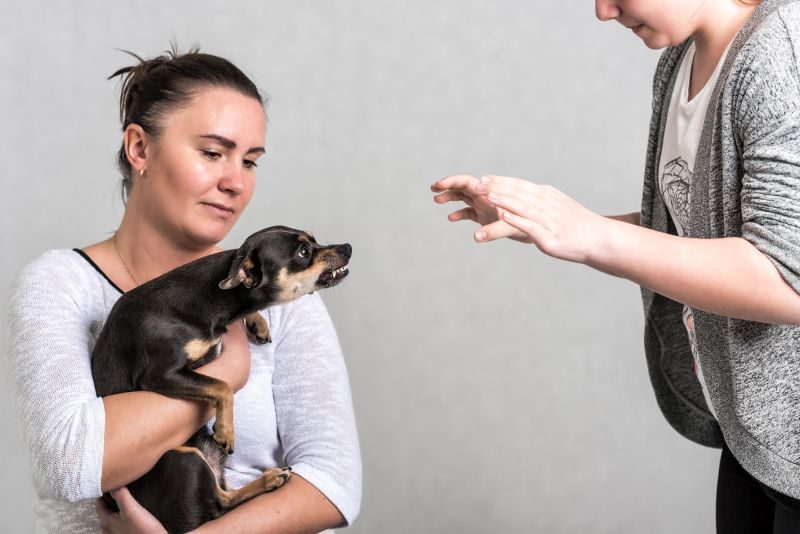Why Your Dog Loves You Best
Your dog’s choice to bond primarily with you is not surprising. Though some dogs can be affectionate and loving with a variety of people, others will form an attachment to only one or two individuals. I have this type of relationship with my Pug, Willy. He enjoys other people, but when he’s given a choice, I’m the one he wants to be with.
Sometimes, however, this type of extreme devotion can stem from anxiety rather than affection. Fear can cause a dog to avoid certain people and cling to others. This may be the case in your situation: Your dog may be more timid with your husband than she is with you because of fears she developed before you adopted her.
Dogs may react fearfully to certain people because of the way they were socialized as puppies. Your dog may be uncomfortable with your husband because she was not exposed to many men as a puppy, or maybe she wasn’t exposed to men who look like your husband. Men can be frightening because of their appearance: They are typically bigger and taller and have deeper voices than women. Details like beards and glasses can also unsettle a dog who is not used to them.
Your dog may be picking up on other, more subtle factors in her interactions with your husband, such as the way he approaches her. My husband, Ben, and I were recently at a friend’s house; to my surprise, my friend’s dog reacted fearfully to Ben, who was leaning forward in his chair with his arms resting on his legs, looking at the dog. Ben was trying to be friendly, but his posture and direct eye contact were apparently perceived as a threat by the dog. When Ben adopted a more neutral position — turned slightly to the side and looking away — the dog’s reaction changed. Your dog may be reacting to similar unintentional cues from your husband.
It is also possible that a difference in the way you and your husband discipline your dog is affecting her interactions with him. If you rely on positive reinforcement to get your dog to behave and your husband uses punishment, this may cause your dog to be nervous around him or avoid him all together. It is important to take a consistent approach to training and discipline, and I always recommend positive reinforcement training over punishment or confrontation-based training.
Reasons Your Dog Might Not Trust Your Boyfriend
Some breeds are cautious around new people more than others, although this isnt always true. You can research your dogs breeds and breed traits to figure out what about them makes them click.
Is It OK If a Dog Is Protective of One Family Member?
“Protective” behavior is another human attribute that we project onto our dogs. Unless trained specifically for protection work, the “protective” behavior your dog displays is most likely resource guarding.
Dogs see their owners and family members as a valuable resource that provides food, water and affection. If you notice that your dog growls or snarls at other family members only when they are interacting with you, he might be guarding you.
Guarding behavior may seem harmless and even endearing at times—after all, how sweet is it that Fido loves you so much that he doesn’t want to share you with anyone? However, a growling dog is a dog that’s giving a warning; his behavior could escalate and a bite may soon follow.
This is especially important to acknowledge in any home with small children. Children have a difficult time reading dog body language if not taught very well. A guarding dog and a child who doesn’t recognize guarding behavior is a recipe for disaster.
Seek out a positive reinforcement trainer as soon as possible if your dog displays guarding behavior.
In this particular situation, it’s important that you avoid trainers who use aversive methods like positive punishment and negative reinforcement. Dogs who guard are trying to prevent the loss of their resource and have extremely heightened emotions when they feel the resource is at risk.

14 Signs Your Dog Doesn’t Love You (Even if You Think They Do)
It’s every owner’s worst fear: You’ve brought home the pup of your dreams, and he gets along with everyone in the family — except for one person.
Aggression toward any family member, whether severe or mild, should be addressed right away to prevent the situation from escalating. What starts as a small growl could turn into a much more complex problem over time.